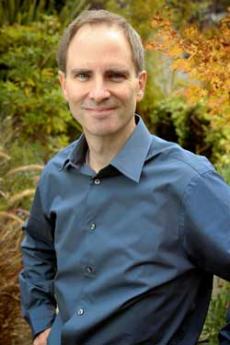Meet environmentalist Kenneth Worthy, who received his Ph.D. in environmental studies from UC Berkeley in 2005 and happens to be your instructor for Introduction to Culture and Natural Resource Management. In addition to teaching at UC Berkeley, he teaches at St. Mary’s College of California and New York University. Kenneth is also a research associate at the Department of Environmental Studies at the University of California, Santa Cruz. He was also recently selected to be part of both the American Cultures Engaged Scholarship program and the inaugural UC Berkeley Adobe Fellows Program.
His research and reviews have been published in books, articles and an encyclopedia. His book Invisible Nature: Healing the Destructive Divide between People and the Environment was published by Prometheus Books; his co-edited book After the Death of Nature: Carolyn Merchant and the Future of Human-Nature Relations was published by Routledge. His blog, The Green Mind, is hosted at Psychology Today.
We recently asked Kenneth a few questions about his teaching experiences with FPF.

Professor Kenneth Worthy
How did you get into teaching?
I teach because modern society is faced with existential threats—a global environmental crisis and the potential for nuclear warfare—and will succumb to these threats unless people are educated about them and equipped with strong critical-thinking skills.
What do you enjoy about teaching freshmen?
I like the small college atmosphere of FPF, in which students form a community and have a lot of contact with their instructors. My students are motivated, eager and ready to learn. They form bonds with each other to the extent that's not quite as common in my other courses.
I enjoy being a part of their transition from high school to college, helping break down some of their assumptions, and instilling them with some of the skills and autonomy that will enable them to succeed at Berkeley.
How do you engage your students?
The topics in my course—access to natural resources, race, culture and environmental problems—connect to current issues in society that students want to learn more about. I help students understand the significance of these topics and of environmental history to their lives. They get it.
What has been your most rewarding teaching experience through FPF?
When my students take what they have learned in my course and can help teach the students in a different course through discussions and debates, sharing the knowledge I helped them acquire.
What would you like prospective FPF students to know about the program?
The well-rounded experience of studying in FPF inspires students to be better students, better-educated workers and more informed citizens of the world. This is your chance to have a small-college experience. Don't miss it.
